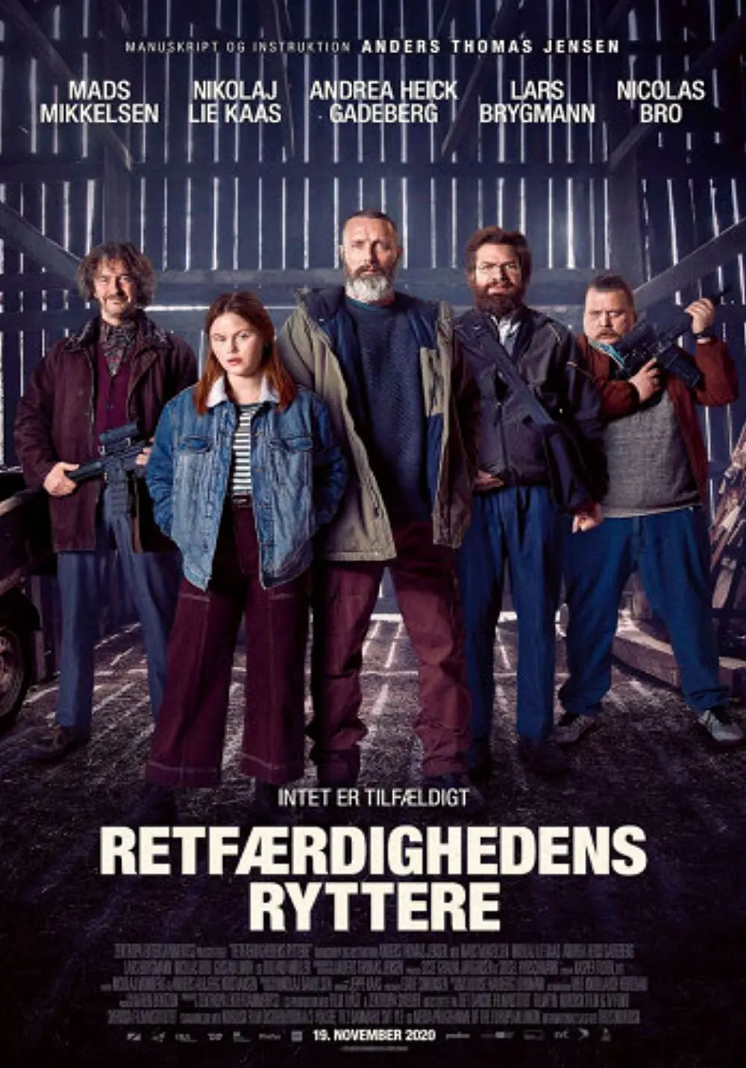Hvitur, Hvitur Dagur Death will let go of everything

Two years ago Icelandic director Hlynur Pálmason made his debut at the Locarno Film Festival with his unique film “The Brothers of Winter”, and his second film “White White Day”, which was selected for last year’s Critics’ Week in Cannes, continues the same distinctive style. The photographic composition, sound and editing all reveal a different kind of charm, which is probably closely related to his identity as a painter and artist. The opening shot of the house in real time with a fixed one camera position telephoto is quite stunning, making you think you are walking into an art museum to enjoy an experimental film. In another scene, a rock rolls down a hill and falls into the water, embedded in the characters’ dialogue. This abrupt editing unexpectedly breaks the narrative’s original rhythmic balance, suggesting a sudden change in the protagonist’s mood and a series of gradual escalation of the plot afterwards.
However, compared to its experimental debut, this new work is more friendly to the audience, and the easy-to-understand plot does not make people drowsy. Although the first half of the film still uses a white space, the whole film is cleverly integrated into the plot design of the genre, the hero found evidence of his wife’s cheating in her belongings, secretly stalking the man with whom his wife is having an affair, and threatening the adulterous man with a gun after discovering the truth. Some of the plot is handled with the Coen brothers’ dark sense of humor, such as the fracas in the psychiatrist’s office and the fight in the police station, and the scene in which the man digs a hole in the dark and confronts the cheater seems to pay homage to “Blood Maze”, creating a sense of unexpected humor in the atmosphere of thriller and suspense.
The actor’s performance is excellent, and he brings out the cold and repressed character of the Scandinavians, which is believed to be the key to the film’s focus and the dramatic plot. On the surface, the story seems to be exploring the moral code of Icelanders, the relationship between cheating and loyalty or not, but what confuses me a little is that the first half of the script spends a lot of ink to depict the attitude of the hero towards his daughter and granddaughter, and his unfailing care and consideration for them, this kind of tolerance and love, and the second half of the attitude towards his late wife’s cheating and cheating to form a strong contrast. The two different expressions of love in this cold and ruthless retired Scandinavian policeman are worthy of careful consideration, especially the final scene in which he carries his granddaughter and shouts in the tunnel and the final scene in which he meets his wife in fantasy, are the best footnotes of these two complex “loves”.
The film “White White Day” (Hvítur, Hvítur Dagur 2019) tells a simple story, but what this simple story is trying to say is elusive. On the surface, it’s about marital fidelity, but if it stopped there, the film wouldn’t make much sense. In the process of watching the film, I have been wondering: (1) if the male lead is replaced by a young man, would not there be more to do, easier to cause dramatic conflict? (2) Why is the film filled with the impression of death throughout? Based on these two thoughts, we can roughly make the following guesses about the theme of the film: although he can carry a heavy psychological burden like a young man, but under the impression of death, he can finally let go of it like an old man. The explanation is as follows:Why do you say that he is carrying a heavy psychological burden like a young man? In other words, it is the result of social morality rather than the natural instinct of human nature, and more often than not, it is the need to protect family property. So, what kind of society does he live in and what kind of attitude do people have towards “cheating”? When he found evidence that his late wife had cheated on him during her lifetime, he suspected a connection between the cheating partner and her death. So he began to investigate, the result is that he secretly printed back the investigation information on the table, relatives do not ask. Someone asked, he further investigation at least have some kind of psychological support, but it turned out to be the opposite of what he wanted. He had to take the initiative to talk to his brother about it and ask him about his attitude toward it. As a result, his brother thought that the cheating of both spouses are normal, clearly indicating that sex and love can be separated, and even hinted to him that there is really no point in continuing the investigation, after all, once happy. This attitude certainly has the suspicion of intentionally relieving the older brother, but more or less reflects the attitude of the society they live in.
The person who best reflects this attitude is his wife’s cheating partner. When he was threatened with a gun and escorted to a pre-digged pit, he kept thinking about what he had done, not even thinking about cheating. This is a testament to the attitude of the society he lives in towards cheating. After all, Iceland is a rich country with a tolerant society, where children are “educated” about cheating stories from an early age and are used to such things, and his granddaughter tells the story of musician Schumann jumping off a bridge for love as a joke. However, the old man who became a grandfather had to find out what happened when his late wife cheated on him, and took the initiative to put on the moral shackles that society does not quite recognize, which is not what is a quack. When he threatens his wife’s cheating partner to reveal the details of the cheating, this is no longer a quack, this is already self-abuse (perhaps in this kind of thing men have this tendency to self-abuse, the result is to abuse themselves and then to abuse others, self-abuse is just the accumulation of hatred).
How is the impression of death throughout the film? The film seems a bit abrupt is the mirror image of the stone that appears from time to time. Although the rocks are irregular, there are two occurrences of rocks that look like human skulls, which is obviously a hint of death. The main character lives in the mountains, the road is also in the mountainside area, there are often falling rocks on the road, endangering traffic safety, perhaps this also implies the cause of his wife’s death. This area is full of rocks, and everywhere you can find strange rocks that can be put on the desk, indicating that the mountain rocks are seriously weathered, and the road is in a windy area, it is not surprising that there are rocks blown down from the mountains, or a road section is closed at any time. In addition, the mountains are always misty fog, is also a deadly safety hazard. It is worth exploring whether there is more to death than rocks.
Children are familiar with “death” from childhood. His granddaughter was given a live fish, and when she landed it she was able to smash it like an adult; he told her horror stories about stealing a dead man’s liver, and the little girl didn’t seem to find it so scary; the TV shows she watched at home seemed to be a kind of death education. The astronaut kept shouting that he was afraid of death, afraid of the unknown, but said that “all men must die”.
The novel his wife read was also about “a young couple found dead”. When he was in psychotherapy, the psychiatrist asked him if he had any suicidal thoughts. He uses the threat of death to force his wife’s cheating partner to satisfy his self-abuse; this cheating partner later comes with a knife to take revenge, also ready to fight to the death. The film offers so many impressions of death, as if to tell us that in a country so familiar with death, so unapologetic, so accustomed to it, what else can people not get over? Even if the main character has a stubborn brain like that, and is obsessed with his shit, he will let it go eventually.
How can he put everything down under the impression of death? Even though his late wife cheated on him during his lifetime, it didn’t affect her ability to fill other social roles, such as grandmother. So she is still a good grandmother to her granddaughter, the “best of the best”, ahead of him, the “second best” grandfather. When he asked his brother to talk about his late wife’s infidelity, his brother only reassured him that it was normal to cheat and that it was important to have been happy; when his brother talked to his granddaughter about Schumann’s story, it seemed to imply that even a great man like Schumann was troubled by love, and that death could not stop his woman from falling in love. These words should have had a soothing effect on his angry mind. So, when he saw the psychiatrist, he was going to stop there: “I wouldn’t be like this if I didn’t care, but it’s done, and I don’t want to change anything.” However, unknowingly, the psychiatrist mistook his “anger” for “sadness” and talked to him about “death”, “love” and “no harm”. “and “do no harm”, which finally angered him. As a result, he destroyed the equipment in the counseling room. This behavior, although also blame the doctor (how to meet with the patient, the doctor does not ask the condition of their own chatter?) But he was almost arrested. He was on the verge of losing control, and it’s a good thing it was a milk flow rather than a bloodbath at the police station.
He finally relapsed into anger. He started his asshole behavior by calling his beloved granddaughter names. The granddaughter was concerned about whether he had killed someone and tried to stop his irrational behavior by being young, but he was scolded for no reason. At the police station he locked up his two colleagues, then, with the posture of office work drove to solve personal emotional problems, he stepped directly from lawlessness to crime. As a result, he threatened his late wife’s former cheating partner with death, and the cheating partner likewise sought revenge with a death stance. This back-and-forth seems to make him understand his asshole behavior. Although we cannot directly attribute his transformation to some kind of “death” revelation, he finally let reason prevail over emotion, and his society is full of “death impression” is inseparable, because, in matters without choice, madness is useless. In the impression of death, people are more likely to be calm. Of course, the attachment to family is also his cure, although the memories of his lover are not only good, but this seems to be the sad thing, because it is precisely the human need that is not taken care of.




